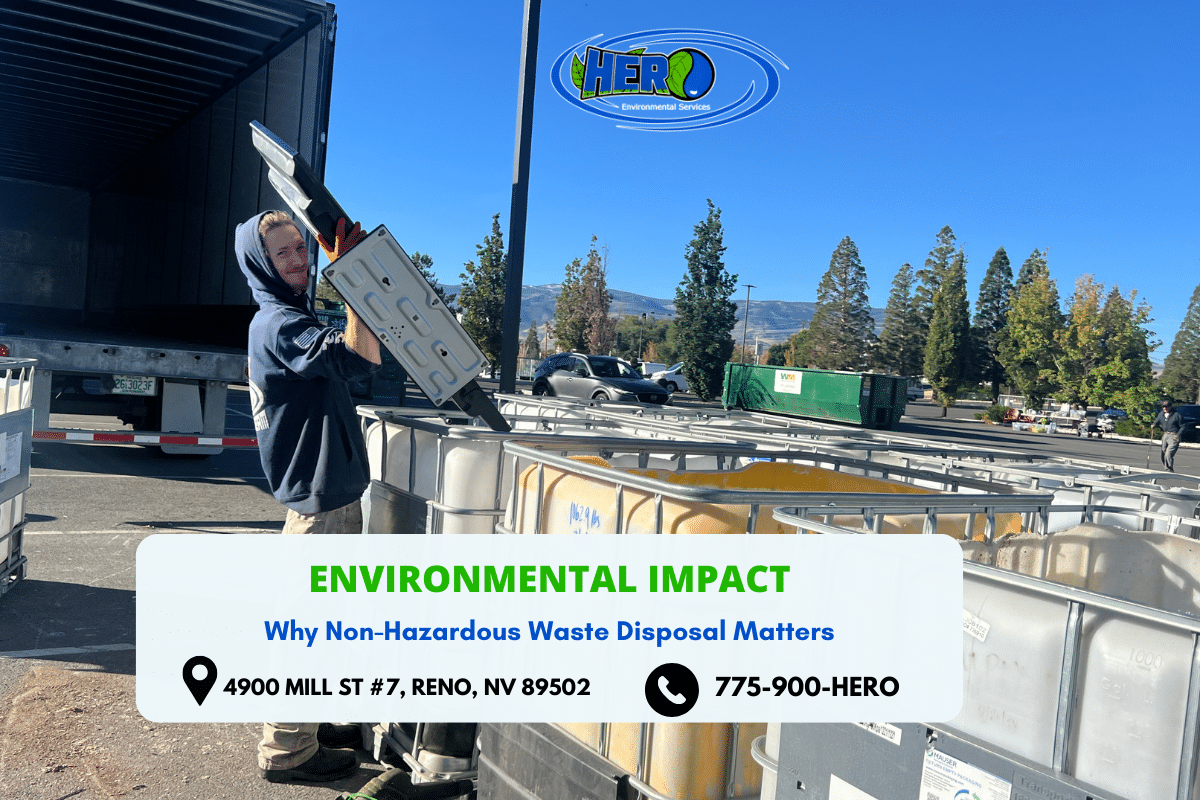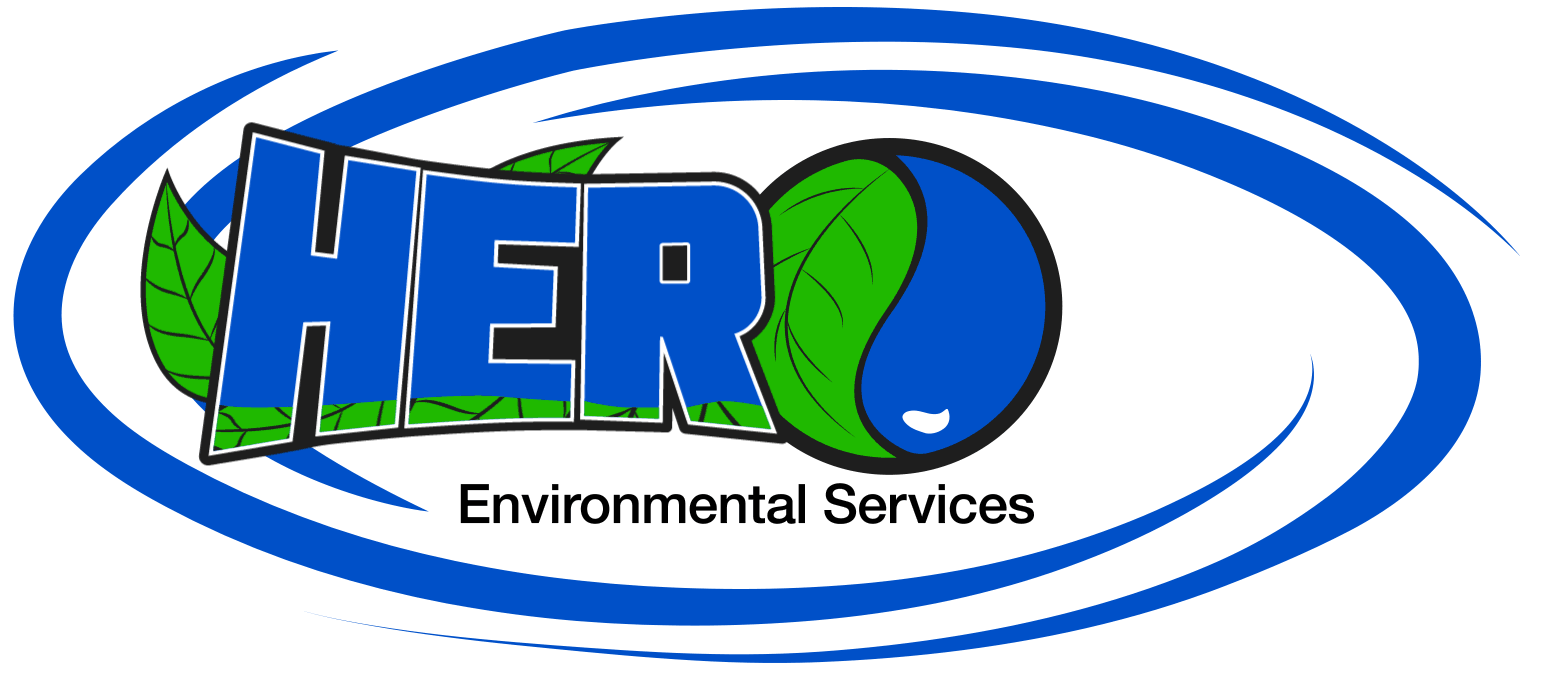
Environmental Impact: Why Non-Hazardous Waste Disposal Matters
Despite accounting for a sizable amount of the world's waste stream, non-hazardous garbage is frequently disregarded when talking about its effects on the environment. Non-hazardous can come from households, industries, and agriculture.
The Environmental Protection Agency (EPA) estimates that non-hazardous industrial waste amounts to around 7.6 billion tons annually in the United States alone.
Inappropriate disposal of non-hazardous waste can have significant long-term repercussions. It affects the ecosystem, raises greenhouse gas emissions, and taxes waste management systems. Even though the effects are not immediate - these wastes can be very dangerous to human health and the environment.
Considering the amount of non-hazardous waste, California has put stringent rules in place to control how non-hazardous garbage is disposed of. The goal is to lessen the impact on the environment. They have levied the law to encourage recycling, reusing, and reducing the amount of waste that ends up in landfills.
Proper disposal of non-hazardous waste can benefit future generations and the environment with a more sustainable future. If you are struggling with disposing of your waste - you can get in touch with the best non-hazardous waste transport & disposal service in Reno.
Why Is It Important to Dispose of Non-Hazardous Waste Properly?
Here are 5 benefits of disposing of non-hazardous waste properly -
1. Prevents Environmental Contamination
Non-hazardous trash does not immediately pose a risk, but incorrect disposal can result in pollution - land, water, and air pollution. Let’s take this as an example - metals, plastics, and other non-biodegradable items, if not discarded properly, might enter natural ecosystems or stay in landfills, endangering species and causing pollution.
Certain non-hazardous waste products can decompose over time and release dangerous chemicals into groundwater and soil, endangering the health of the ecosystem. By making sure that these wastes are recycled or disposed of appropriately, pollutants are kept from slowly building up, and soil quality, water supplies, and biodiversity are preserved.
2. Reduces Greenhouse Gas Emissions
Methane, which has a far stronger effect on climate change than carbon dioxide, is one of the main greenhouse gases released by landfills. As per a study, food accounts for nearly 50% of those projected emissions because the decomposition of organic waste in landfills releases large quantities of methane.
We can drastically cut methane emissions by rerouting these materials to composting sites or other recycling procedures. The city of Reno understands that it is important to lower greenhouse gas to address climate change and plans to reduce the disposal of organic waste by 75% by 2025.
3. Conserves Resources and Energy
Recycling and disposing of non-hazardous waste material also help in energy and resource conservation. Paper, metals, and some plastics can be recycled to reduce the stress on natural ecosystems. It also saves energy and minimizes the need for raw materials.
When non-hazardous waste is recycled - approximately 95% of the energy required to make aluminum from raw sources is saved. The best non-hazardous disposal service guarantees that reusable materials are reintroduced into production processes. This is mostly done by properly managing non-hazardous trash. It minimizes resource depletion and promotes a circular economy.
4. Supports Public Health and Safety
If non-hazardous wastes are not managed and disposed of carefully, they have a negative impact on public health - even though it is not intrinsically harmful. For example - unmanaged industrial byproducts or non-hazardous building detritus might lead to unhygienic conditions and attract bugs.
That’s not all. Poorly maintained, non-hazardous waste sites can endanger the populations around them. These cause air pollution, odor problems, and possible chemical exposure. These add to the health risks as well. Hence
5. Encourages Sustainable Waste Management Practices
Appropriate disposal of non-hazardous garbage highlights how important it is to increase recycling, improve composting, and cut waste at its source. Communities that place a high priority on appropriate non-hazardous waste management techniques cultivate a sustainable culture that can have a significant influence.
California's recycling and composting laws encourage citizens and businesses to adopt more environmentally friendly practices and think critically about the waste material generated. This supports a broader push towards sustainable waste management.
Takeaway
Non-hazardous waste disposal is important for protecting the environment. Responsible, non-hazardous management prevents environmental contamination. Also, it reduces greenhouse gases, conserves resources, and supports public health.
No matter if you are a business, industrialist, or a homeowner - adopting sustainable practices, can minimize the negative impacts of non-hazardous waste. Moreover, it can contribute to a healthier planet. Addressing non-hazardous waste disposal is a matter of regulation and commitment. It helps preserve our ecosystems and protect future generations.
For proper waste management, contact the best non-hazardous waste transport in Reno. The best waste management company will ensure your non-hazardous materials are disposed of properly and with precautions.
Looking For A Reliable Non-Hazardous Waste Disposal Service In Reno? Contact Hero Environmental Now!
Want to make a difference? Start with your waste! Take a closer look at the waste you produce and explore ways to reduce, reuse, and recycle. From composting kitchen scraps, recycling household items, or supporting local waste reduction initiatives, you can take these small actions to make a big impact.
Let Hero Environmental handle the non-hazardous waste transport in Reno. This is because our team is well-equipped with the proper tools to manage and dispose of your waste material safely. In addition to waste management, we also offer soil remediation, emergency response, trash compactor cleaning, environmental field services, and many more. To know more about our services, visit our “service page.”
Stay informed about ways to reduce your ecological footprint. Contact us - and together, we can create a cleaner, greener future for everyone.
